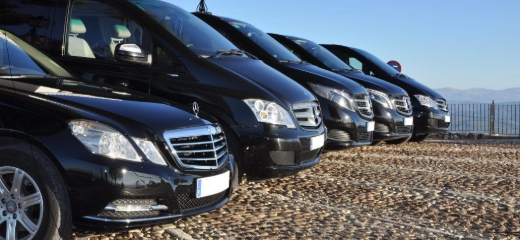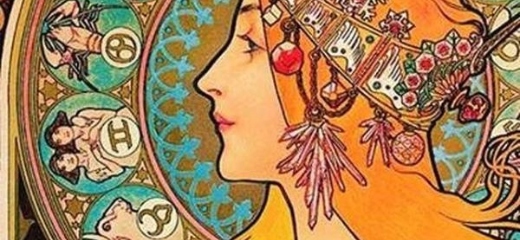The World Health Organization defined the spread of coronavirus COVID-19 as Global Pandemic in March 11. Since then more than 450,000 deaths recorded and almost 9 million cases have been confirmed.
The outbreak is having an enormous impact on the travel industry, a sector of huge importance for many countries worldwide.
According to the protocol of hygienic-sanitary measures elaborated in Spain a month ago, tour guides would have no physical contact with their clients, not use brochures and work with small groups. But now that the number of contagied people has gone down in Spain, and protection measures relaxed.
Some examples of the magnitude of tourism in the world are France, with nearly 90 million foreign tourists visited the country in 2019, Spain, where it accounts to 12% of Gross Domestic Product, and New York, with a $70 billion industry fueling 400,000 jobs.
The impact of covid has ranged from hotel and cruise ship quarantines to airlines halting flights. Tour guides have been suffering along as everyone else but they often are an overlooked segment of the tourist society. Nobody is booking and it means zero revenues for all operators.
Large size companies like Booking and Hilton still can invest money in advertising, small operators can not.
Small tour operators, who comprise more than 80% of tour operators overall, may be the segment of the group most resilient to the economic hazards of the virus as they can scale down and hibernate.
On the other hand, on tours, it looks that small private groups will be a better choice than large groups, and this is good for operators of exclusive private tours such as those offered by artnouveau.club, which allow their clients to discover the cities in a secure way.
Private tours
- Small groups are better than large groups.
- The tour guide \”must assume a firm commitment to risk management, executing the systematic implementation of measures aimed at minimizing risk. Therefore, the tourist guide must define his contingency plan for the prevention and reduction of health and hygiene risks in the exercise of his activity\”, as stated in the protocol prepared by the ICTE in collaboration with CEFAPIT (Spanish Confederation of Federations and Associations of Tourist Guides). This contingency plan should allow you to analyze the risks, inform the clients and prevent them, in order to reduce them in the exercise of your activity.
- As far as the design of activities is concerned, the following preventive measures should be followed:
– Determine how the visit is to be made and where the route is to run based on the risk analysis and the regulations and/or possible restrictions applied by the various service providers (museums, monuments, natural areas, etc.). For example:
– Develop one-way routes to avoid group crossings whenever possible (small towns, historic centres), coordinating in all cases with other tourist guides.
– Avoiding areas that may concentrate agglomerations.
– Avoid small spaces: small chapels, museums with very limited capacity, etc.
– Wherever possible, a single point for loading and unloading the vehicle should be established in cities with the highest volume of tourism, in order to facilitate information, application of health and hygiene regulations and control of such application. This loading and unloading point should be agreed with the competent administration.
– Walking tours and stops for the explanation of monuments should be carried out in open and/or wide spaces, respecting the safety distance.
– A maximum number of people to whom the service should be offered in a safe manner should be established. In the case of using one\’s own vehicle to transport tourists (always with the required license), the regulations in force at the time will be taken into account.
Other recommendations include that it is important to avoid the use of cash and prioritize the use of cards or other electronic means in collections and payments for services. We recommend paying the private tours in advance, either by direct transfer, credit card or Paypal (the three ways to pay our private tours). For example, pre-payment by website. If cash is handled, hands should be washed or disinfected as soon as possible.
Artnouveau.club private tours
Our business forecast for the upcoming 2020 tourist season—which runs from April to November—was encouraging because we had many confirmed reservations. Since the March 14th lockdown, however, everything went downhill. We soon began receiving cancellations for April, May and then for the rest of the year. Now we have nothing. Zero.
We don\’t know what we will be allowed to do and not to do. Yet, we feel positive about our niche market and the encouragement messages of our ex-clients and future ones. Our business is limited to private tours, usually with families, couples or small groups of friends or business associates, so we don\’t mix people who don’t already know and trust each other. We hope that our clients will consider this a way of social distancing and a relatively safe way to travel.
We are trying to keep up our presence in social media alive, keeping in touch with past clients, and offering whatever help we can to our collaborators. We are blessed that our employees, who feel like part of our family, are helping us with newsletters, paperwork and other things. There isn’t too much they can do but what they do is of great value to our company and to me, personally.
To what extent our business will return is something that’s extraordinarily difficult, if not impossible, to predict. Almost 100% of our clients are international, and 95% are from outside Europe. So until we know what the new governmental bans and rules on movement are, we won’t know when we will begin to book tours again.
What also might have a profound effect on our business would be any policies put into place reducing the capacity on airplanes, for example. If airlines reduce their capacity to 60%, tickets will be expensive and not everyone will be able to travel abroad.
Luckily, our tour offerings and approach tends to attract a high-end niche market, and usually those people are able to weather economic downturns like this, so we hope they will continue booking our exclusive private tours.
We used to think that we were losing business opportunities by not working with large groups but now I realize that our model will offer us a distinct advantage for the future. We are the most experienced company offering small, private tours in this region.
The lack of a significant number of rebookings for cancelled tours, the loss of income at the start of the tourist season, the continuing uncertainty of workable guidelines for travelling, are critical factors that need to be addressed, as their impact will continue in the months to come. We didn\’t get any hejpfrom any Government given te nature of our project.
Discover the world of Art Nouveau exhibitions on Art Nouveau Club, a hub for events and private tours around Europe.





